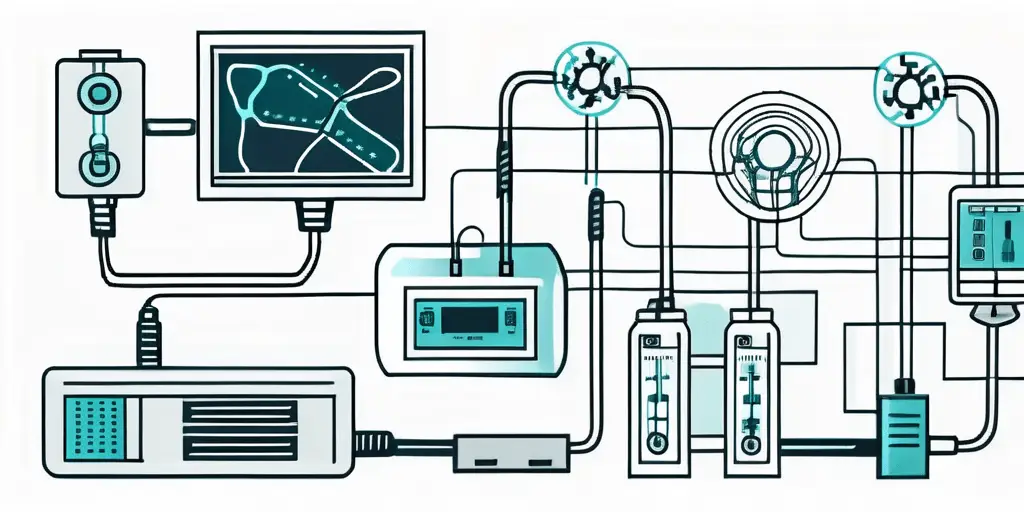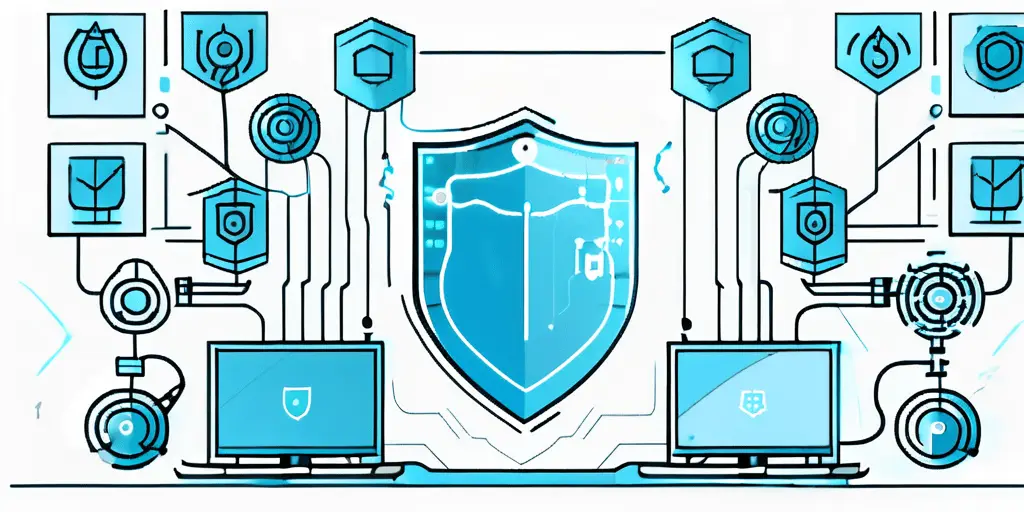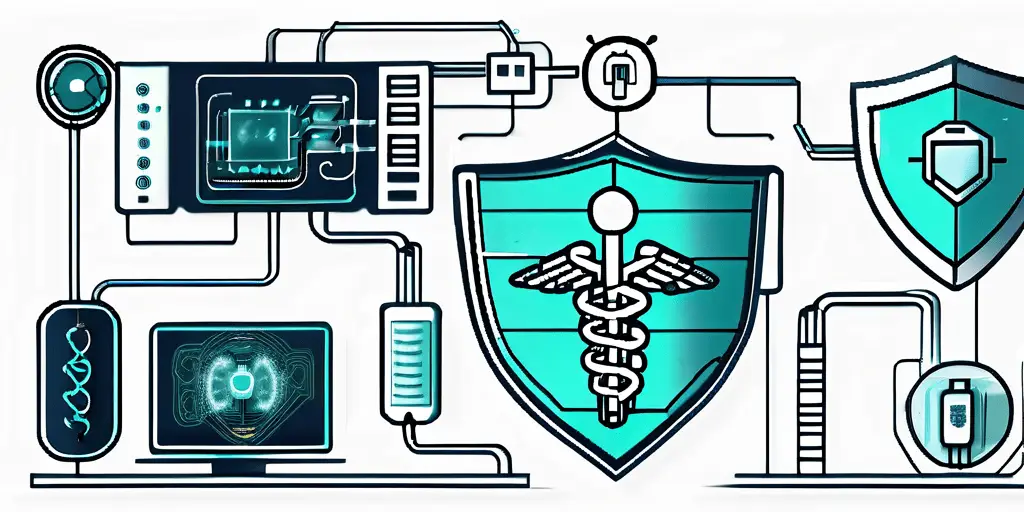Updated November 10, 2024
Medical devices have revolutionized healthcare, enabling faster and more accurate diagnoses and treatments. However, with this progress comes the concern of ensuring the security and privacy of patient data. The IEEE 11073 series plays a crucial role in addressing these concerns and safeguarding the integrity and confidentiality of medical devices. Let’s delve into the world of IEEE 11073 and understand its significance in medical device cybersecurity.
Understanding the IEEE 11073 Series
Before we delve into the details, let’s first establish what the IEEE 11073 series is all about. The IEEE 11073 series comprises standards defining protocols for interoperability and communication among various medical devices. These standards provide a structured framework for data exchange, ensuring seamless integration and compatibility between different devices.

The IEEE 11073 series is not just a random collection of standards; it is a meticulously crafted set of guidelines developed by experts in healthcare technology. These standards undergo rigorous review processes to ensure that they meet the evolving needs of the healthcare industry and keep pace with technological advancements. This dedication to excellence sets the IEEE 11073 series apart and is a cornerstone of modern healthcare technology.
Definition and Purpose of IEEE 11073 Series
So, what exactly is the purpose of the IEEE 11073 series? These standards have been developed to establish a common language for medical devices, allowing them to communicate effectively and exchange data in a standardized format. This uniformity promotes interoperability among devices from different manufacturers, making it easier for healthcare professionals to access and analyze patient data across multiple platforms.
The IEEE 11073 series focuses on data exchange and emphasizes the security and privacy of patient information. These standards include provisions for secure communication protocols and data encryption, ensuring that sensitive medical data remains protected from unauthorized access or tampering. This commitment to data security underscores the importance of maintaining patient confidentiality and upholding ethical standards in healthcare technology.
The Role of IEEE 11073 in Medical Devices
The IEEE 11073 series plays a pivotal role in enhancing the functionality and reliability of medical devices. By implementing these standards, manufacturers can ensure that their devices communicate seamlessly with other devices, such as monitoring systems and electronic health records. This interoperability streamlines healthcare workflows and enables more comprehensive patient care by providing a comprehensive view of a patient’s health status.
The adoption of IEEE 11073 standards fosters innovation in the development of new medical devices. Manufacturers can focus on improving device performance and features, knowing that adherence to these standards will guarantee compatibility with existing healthcare systems. This interoperability-driven innovation accelerates the pace of technological advancements in healthcare, ultimately benefiting healthcare providers and patients.
The Connection Between IEEE 11073 and Cybersecurity

The IEEE 11073 series, developed by the Institute of Electrical and Electronics Engineers (IEEE), is crucial in safeguarding the integrity and confidentiality of medical data exchanged between devices. This standardization ensures that healthcare systems can operate securely in an interconnected environment where the exchange of sensitive information is constant.
How IEEE 11073 Enhances Cybersecurity
The IEEE 11073 series includes standards that help address cybersecurity concerns by providing authentication, encryption, and data integrity guidelines. These protocols establish a secure communication channel between medical devices, protecting sensitive patient data from unauthorized access or tampering. Healthcare organizations and device manufacturers can significantly reduce cyber-attack risks by implementing these standards.
The IEEE 11073 standards promote interoperability among medical devices, allowing seamless communication while maintaining robust security measures. This interoperability not only enhances the efficiency of healthcare delivery but also ensures that data exchange is conducted securely and standardized, mitigating the potential for cyber vulnerabilities.
Potential Cybersecurity Risks Without IEEE 11073
Without implementing the IEEE 11073 series, medical devices would be more vulnerable to cyber threats. Hackers could exploit vulnerabilities in communication protocols, gaining unauthorized access to patient data or compromising the functionality of critical medical devices. The consequences of such security breaches can be detrimental, endangering patient safety, violating privacy regulations, and eroding trust in healthcare systems.
The absence of standardized security measures, as provided by the IEEE 11073 series, could lead to fragmented approaches to cybersecurity within the healthcare industry. This lack of cohesion in security practices may create loopholes that cyber attackers can exploit, putting both patient data and the integrity of medical devices at risk. By recognizing the importance of IEEE 11073 in enhancing cybersecurity, stakeholders in the healthcare sector can proactively address potential threats and ensure the resilience of their systems against evolving cyber risks.
The Impact of IEEE 11073 on Patient Safety
One of the primary goals of the medical field is to ensure patient safety. The IEEE 11073 series plays a crucial role in achieving this objective by addressing key aspects of medical device cybersecurity.
With the increasing integration of technology in healthcare, the protection of patient data has become a paramount concern. Medical devices collect and transmit sensitive patient data, ranging from vital signs to treatment plans. It is imperative to protect this information from unauthorized access or leakage. The IEEE 11073 series establishes data encryption and access control guidelines, ensuring patient data remains confidential and secure. By implementing these standards, healthcare providers can safeguard patient privacy and prevent unauthorized use of sensitive information.
Protecting Patient Data with IEEE 11073
Medical devices collect and transmit sensitive patient data, ranging from vital signs to treatment plans. It is imperative to protect this information from unauthorized access or leakage. The IEEE 11073 series establishes data encryption and access control guidelines, ensuring patient data remains confidential and secure. By implementing these standards, healthcare providers can safeguard patient privacy and prevent unauthorized use of sensitive information.
The IEEE 11073 standards focus on data security and emphasize the importance of device functionality and reliability in ensuring patient safety. One cannot undermine the significance of reliable and functional medical devices in providing optimal patient care. The IEEE 11073 series enables manufacturers to adhere to stringent quality control measures, ensuring their devices meet the highest performance and reliability standards. By implementing these standards, healthcare providers can have confidence in the functionality of their medical devices, reducing the risk of device failures or malfunctions that could compromise patient safety.
Ensuring Device Functionality and Reliability
One cannot undermine the importance of reliable and functional medical devices in providing optimal patient care. The IEEE 11073 series enables manufacturers to adhere to stringent quality control measures, ensuring their devices meet the highest performance and reliability standards. By implementing these standards, healthcare providers can have confidence in the functionality of their medical devices, reducing the risk of device failures or malfunctions that could compromise patient safety.
Future Developments in IEEE 11073 and Cybersecurity
The field of medical device cybersecurity is constantly evolving. The IEEE 11073 series continues to adapt to emerging threats and technological advancements, ensuring that medical devices remain secure in the face of ever-evolving cyber risks.

In addition to the ongoing efforts to enhance cybersecurity measures, the IEEE 11073 series also explores integrating artificial intelligence (AI) and machine learning algorithms to bolster device security. By leveraging AI-driven solutions, medical devices can proactively detect and respond to potential cyber threats in real-time, enhancing overall system resilience.
Anticipated Changes in the IEEE 11073 Series
The IEEE 11073 series is expected to undergo significant changes as technology advances. These revisions may include updates to the security protocols and mechanisms, considering new cybersecurity challenges. By anticipating and addressing the healthcare industry’s future needs, the IEEE 11073 series will continue to play a pivotal role in maintaining the security and integrity of medical devices.
The upcoming iterations of the IEEE 11073 series are poised to introduce enhanced interoperability standards, facilitating seamless communication between medical devices and systems. This interoperability framework will streamline data exchange and strengthen the overall cybersecurity posture of interconnected healthcare environments.
The Evolving Landscape of Medical Device Cybersecurity
The landscape of medical device cybersecurity is dynamic and ever-changing. As new threats emerge and cybersecurity practices evolve, healthcare organizations and device manufacturers must remain vigilant. By staying updated with the latest advancements and best practices in medical device cybersecurity, stakeholders can proactively mitigate risks and protect patient safety.
The evolving landscape of medical device cybersecurity is witnessing a shift towards a more collaborative approach. Industry stakeholders, regulatory bodies, and cybersecurity experts are joining forces to establish comprehensive guidelines and frameworks. This collaborative effort aims to create a unified front against cyber threats, fostering a secure and resilient ecosystem for medical devices and healthcare infrastructure.
Conclusion
Recap of IEEE 11073’s Importance in Cybersecurity
The IEEE 11073 series is crucial in ensuring the cybersecurity of medical devices. By providing a standardized framework for interoperability and incorporating security protocols, these standards enable healthcare organizations to enhance patient safety and protect sensitive information.
Final Thoughts on the Future of IEEE 11073 and Cybersecurity
The future of the IEEE 11073 series and medical device cybersecurity appears promising. As healthcare evolves, stakeholders must remain proactive in addressing emerging cyber threats and implementing robust security measures. By embracing the guidelines and protocols set forth by the IEEE 11073 series, the healthcare industry can continue to foster innovation while ensuring the utmost security and safety for patients worldwide.
As we’ve explored the critical role of the IEEE 11073 series in enhancing medical device cybersecurity, it’s clear that the right expertise and proactive measures are essential to safeguarding sensitive health data and ensuring patient safety. Blue Goat Cyber, with its unparalleled commitment to cybersecurity excellence, stands ready to assist your organization in navigating the complexities of digital security in the healthcare sector. Our veteran-owned business specializes in advanced medical device cybersecurity, offering bespoke services that meet stringent HIPAA and FDA compliance standards. Don’t leave your cybersecurity to chance. Contact us today for cybersecurity help, and let us be your partner in securing your digital future.
